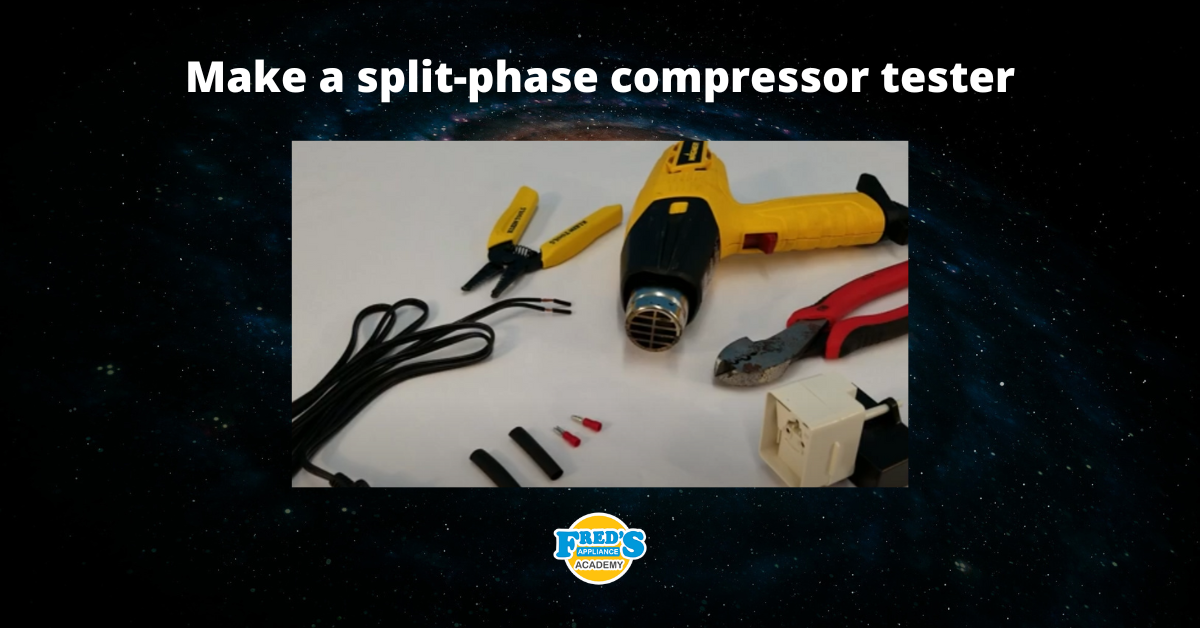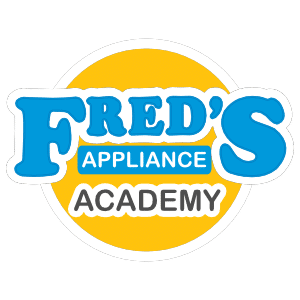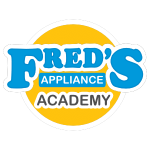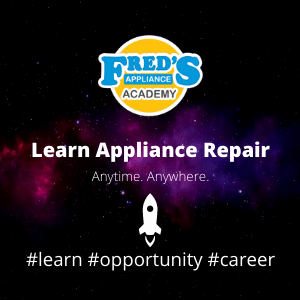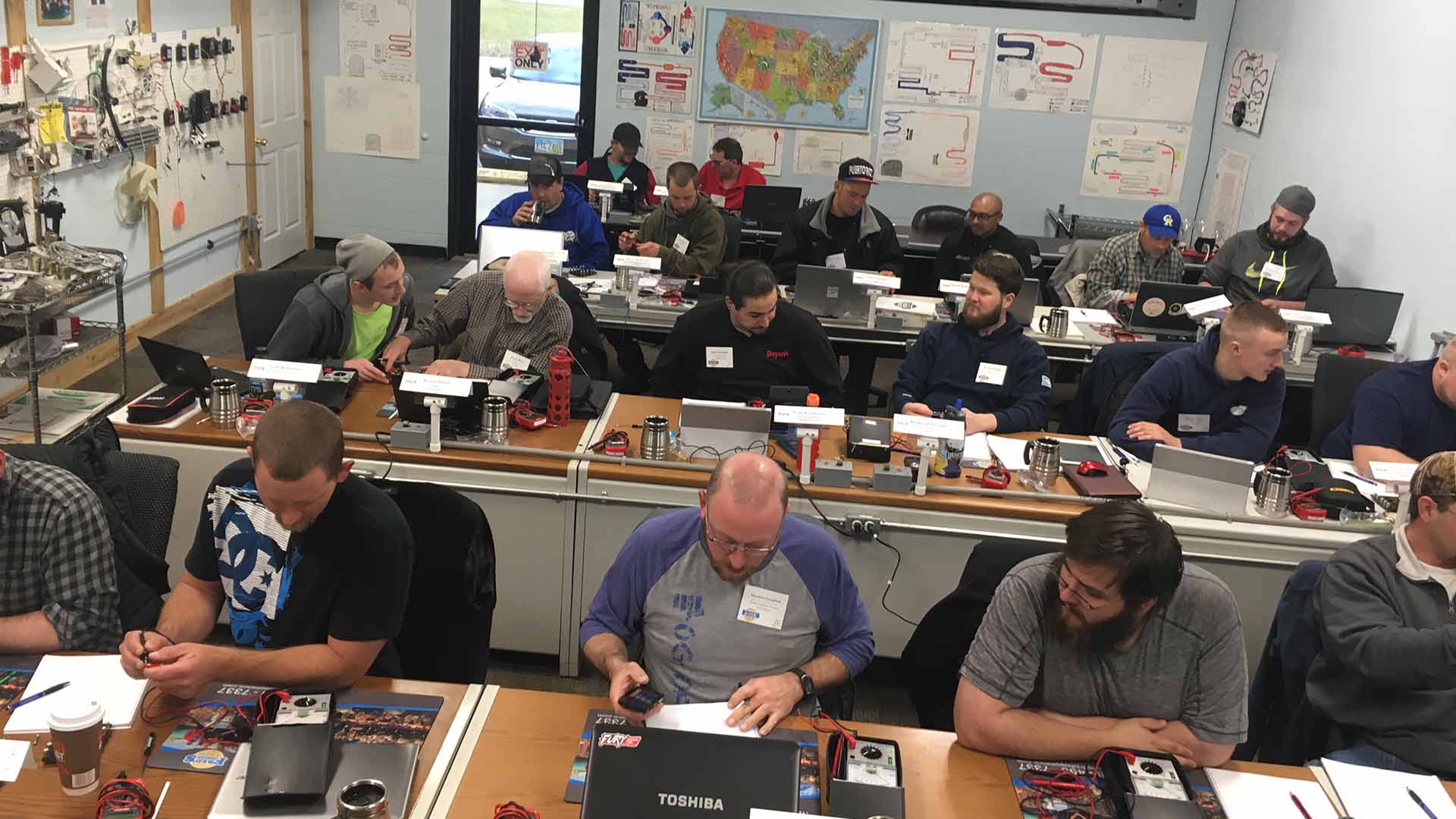
Perhaps you are looking for a career change or a way to earn extra money in your spare time. It would be handy to know how to repair appliances and it could mean the difference between worrying about the bills and having stable, diversified income considering the shortage of and great need for qualified appliance repair technicians in the market today. Consider taking our Basic Appliance Repair class and over the course of three weeks, you can build the foundation for a successful career.
What the Course Covers
In a series of classroom discussions mixed with hands-on training exercises, the course covers a series of topics to make you confident and ready to start working. These topics include electrical theory, refrigeration, electric and gas ranges, dishwashers, top and front load washers, dryers and microwaves. Here is a little more information about each topic.
Electrical Theory
Learn how to use both analog and digital multi-meters for appliance repair. Gain a practical understanding of how electricity moves through a home and through each appliance. In our hands-on class exercises, build basic circuits using breadboards. Learn about the different types of switches found in appliances and how to read and understand wiring diagrams. Learn how to properly check for power going to 120-and 240-volt appliances with a meter.
Refrigeration
We cover top-mount, side-by-side and french door refrigerators. You’ll learn proper electrical and plumbing practices and requirements and how to troubleshoot and repair electronic and mechanical defrost systems, ice makers and water and ice dispensers. You’ll cover the diagnosis of sealed systems and proper sealed systems repair. You’ll know how to check electronic controls using thermistors to monitor temperatures and you’ll gain the knowledge of a fast, efficient and safe way to defrost evaporator coils. We’ll also teach you the use of a torch and high-temperature braze/soldering.
Electric and Gas Ranges
At the outset, we’ll discuss proper electrical and plumbing requirements. We’ll discuss bake and broil elements, repair of infinite switches and electronic oven and surface unit controls, self-cleaning systems and how to properly determine the interior oven temperature. Learn about gas burners and converting from natural gas to LP as well as different types of ignition systems found in gas ranges.
Dishwashers
With an overview of proper installation and electrical and plumbing requirements, you’ll learn how to address common problems with installation, the proper use of detergent and chemicals as well as how they work, not to mention water circulation pumps and dispensers. Electric and gas water heaters and how they work with dishwashers will also be covered as well as garbage disposals, insta-hots, and garbage compactors.
Top and Front Load Washers
Learn installation and electrical and plumbing requirements for top and front load washers. Learn the major differences between the front and top load designs. Gain valuable experience through disassembly and reassembly of both stator-designed and VMW-designed washers as well as how to put each design into diagnostic mode. Get hands-on experience with boot/bellow removal and installation. Know the proper use of detergent and additives and the identification of chemical damage to clothing and have an understanding of electrical circuits including mechanical and electronic controls.
Dryers
Conduct a wiring diagram walk-through of how both electric and gas dryers work. Learn everything involved in dryer installation, including venting, electrical and plumbing. Understand the importance of airflow and learn about each alternative to a traditional vent. Cover steam dryers and how they work, gas burners, their controls, and troubleshooting.
Microwaves
We’ll cover everything related to the installation of microwaves, including electrical and venting requirements. You’ll learn how to test for microwave leakage as well as basic theory and testing of components. You’ll understand the differences between high- and low-voltage troubleshooting. And you’ll also conduct step-by-step diagnostics on a microwave that does not heat as well as a microwave that does nothing.
Student Housing
Our three-week training course includes free student housing, so you don’t have to worry about the logistics of your stay or the extra expenses of limited accommodations options. Student housing at Fred’s Flats is within walking distance of Fred’s Appliance Academy and each room houses two students so that classmates can study together outside of class. Each student gets his or her own private bedroom with a shared bathroom and the flat has a kitchen and laundry. Flats also include air conditioning, cable tv, wi-fi internet, a washer and dryer, refrigerator and range, a microwave, coffee pot, kitchen utensils, dishware – everything you need to make you feel at home during your course stay.
Contact us for more information.
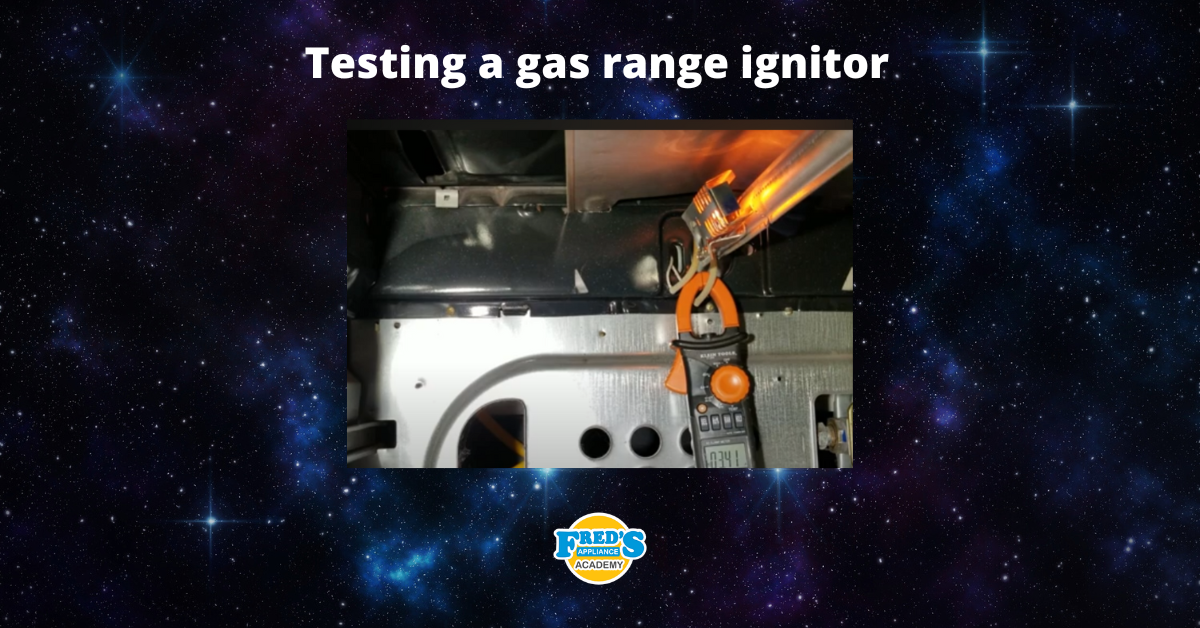
How to test a gas range ignitor
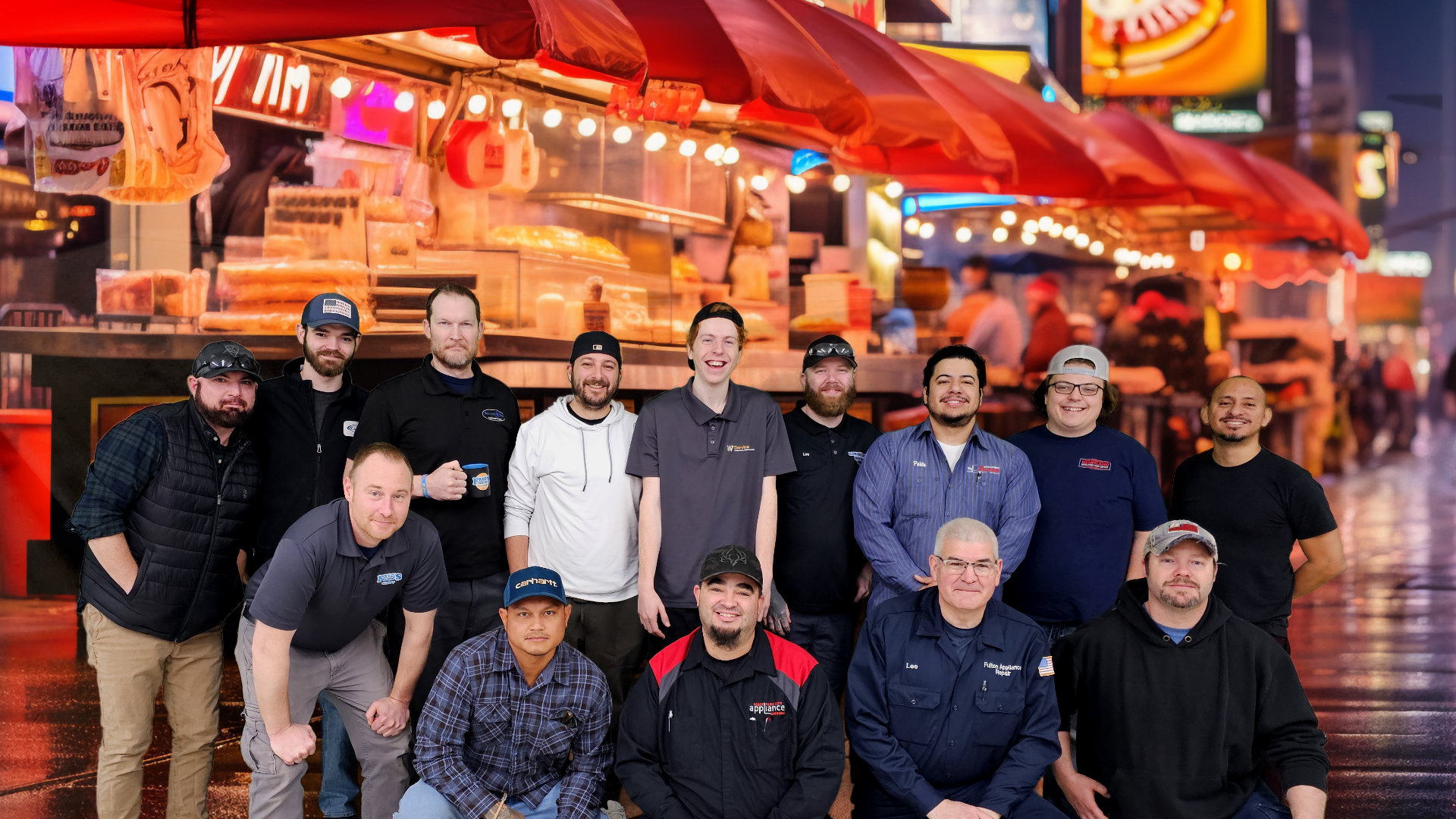
Congrats to our graduating March 2024 class
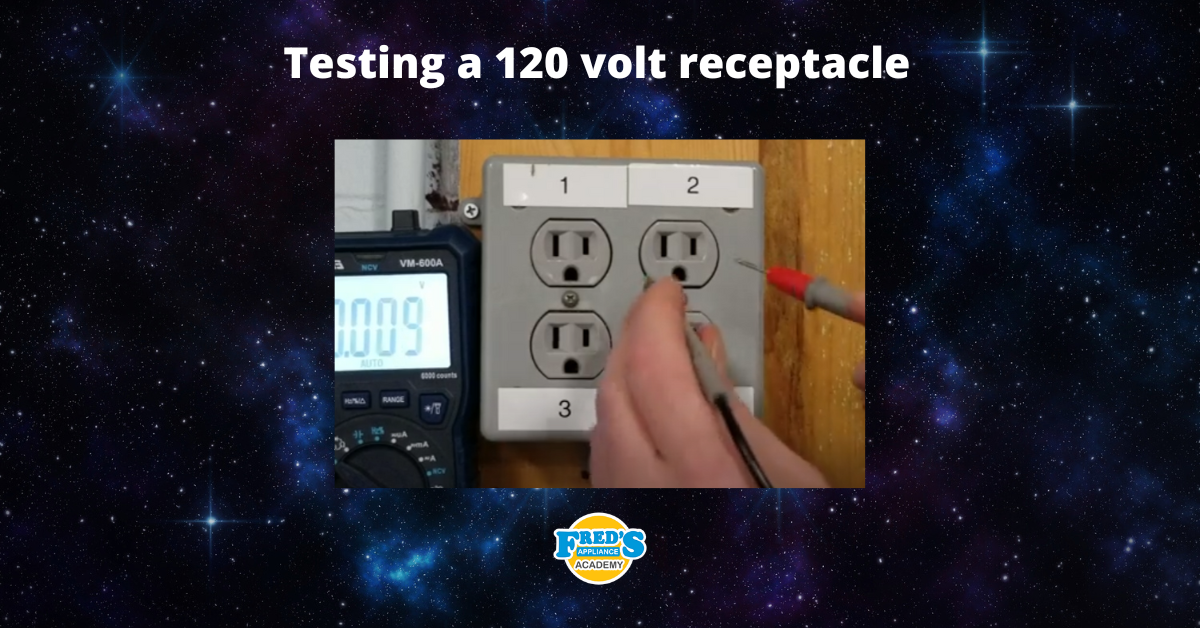
How to test a 120 volt receptacle
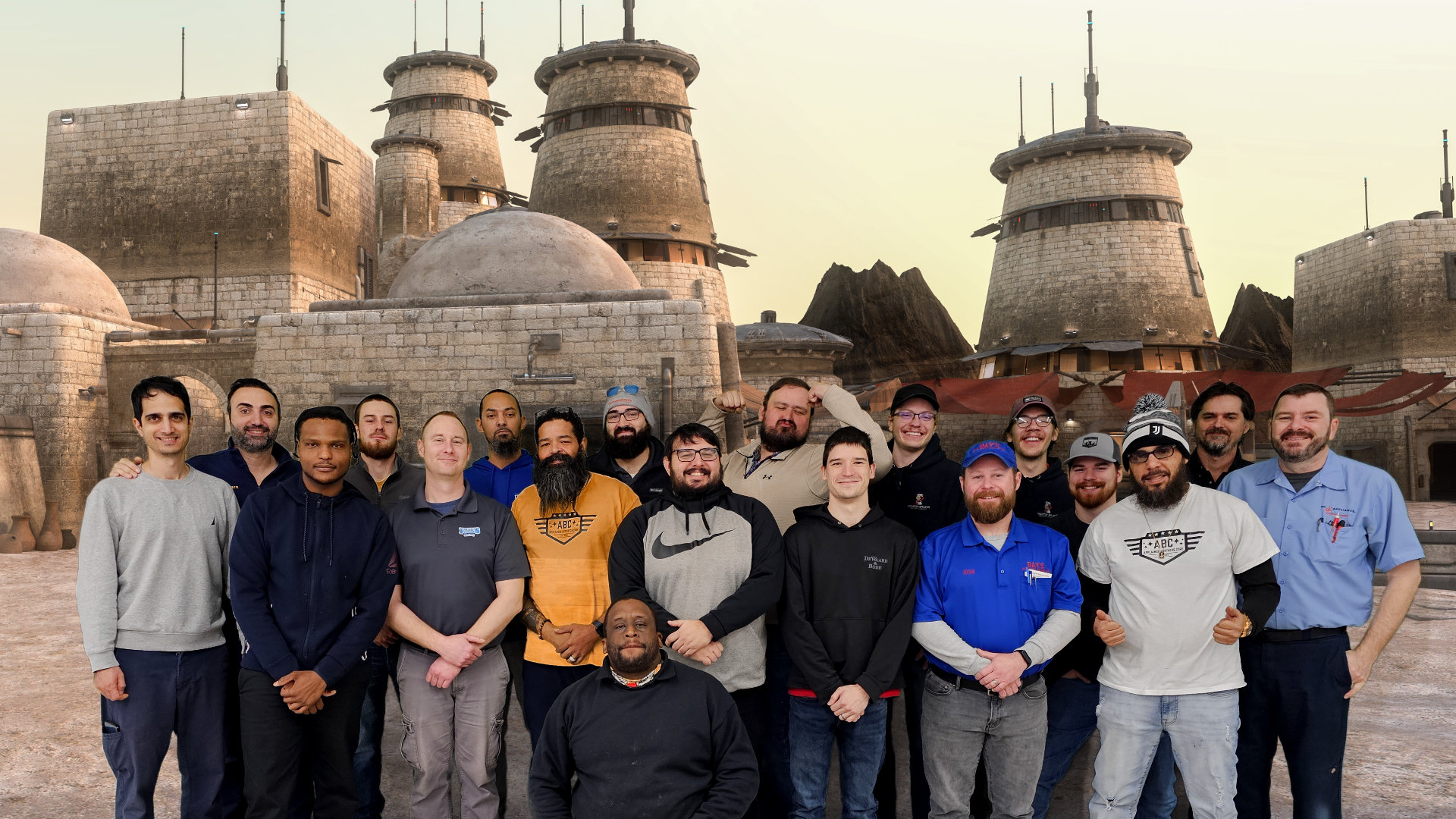
Congrats to our graduating February 2024 class
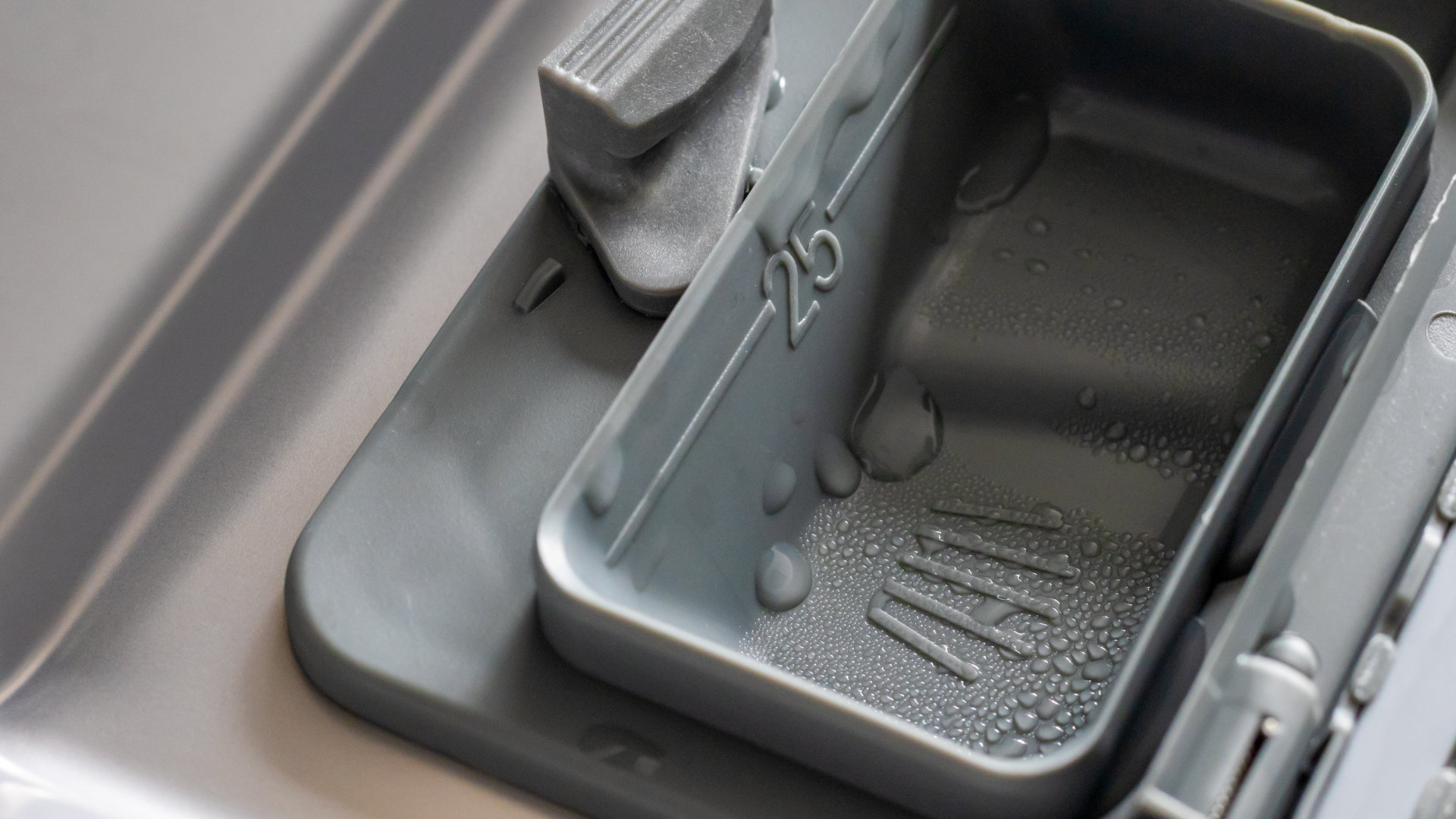
Why Is Your Dishwasher Soap Not Dissolving? (5 Easy Fixes)
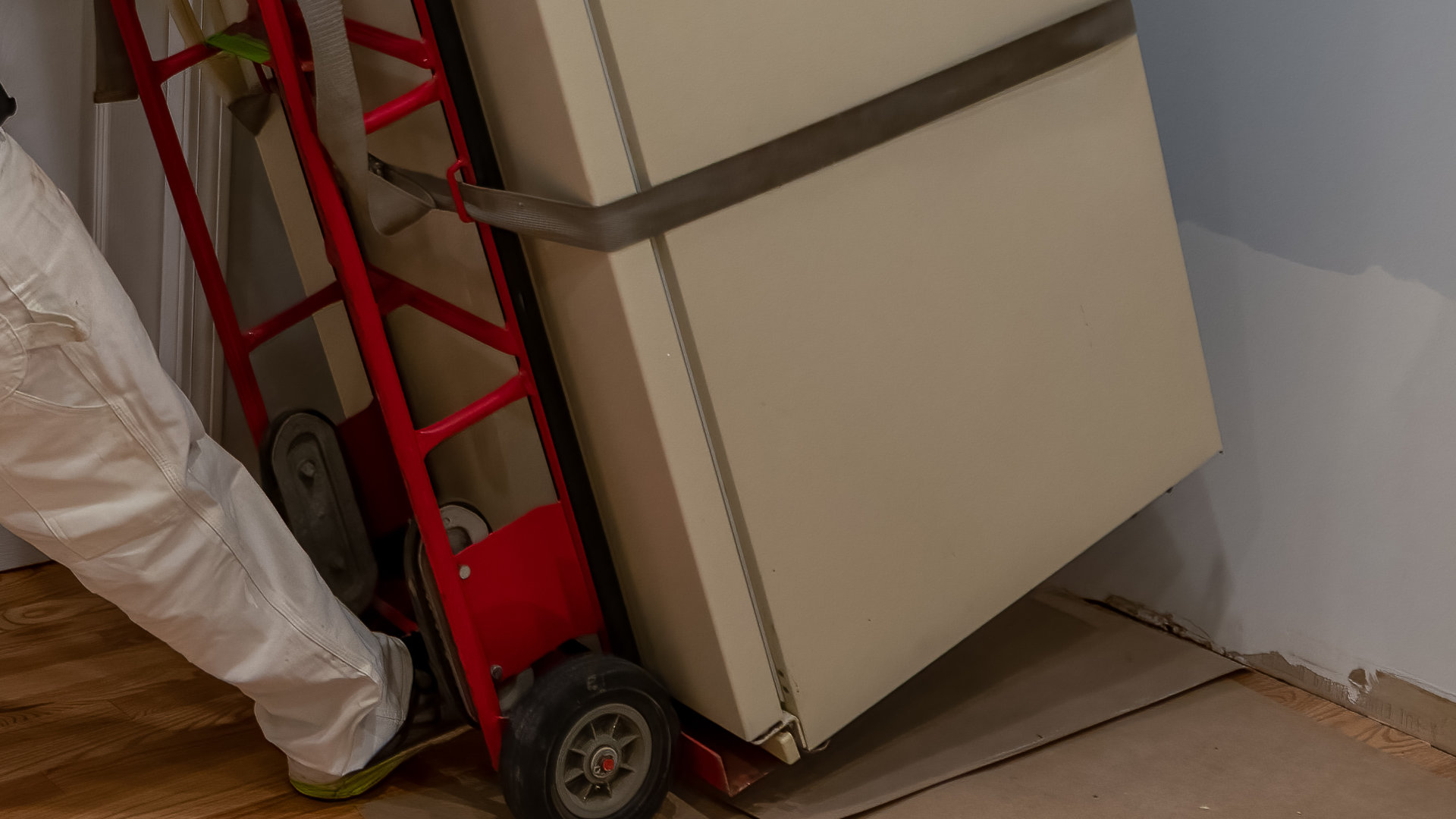
Refrigerator Dripping Water Inside? 5 Quick Fixes
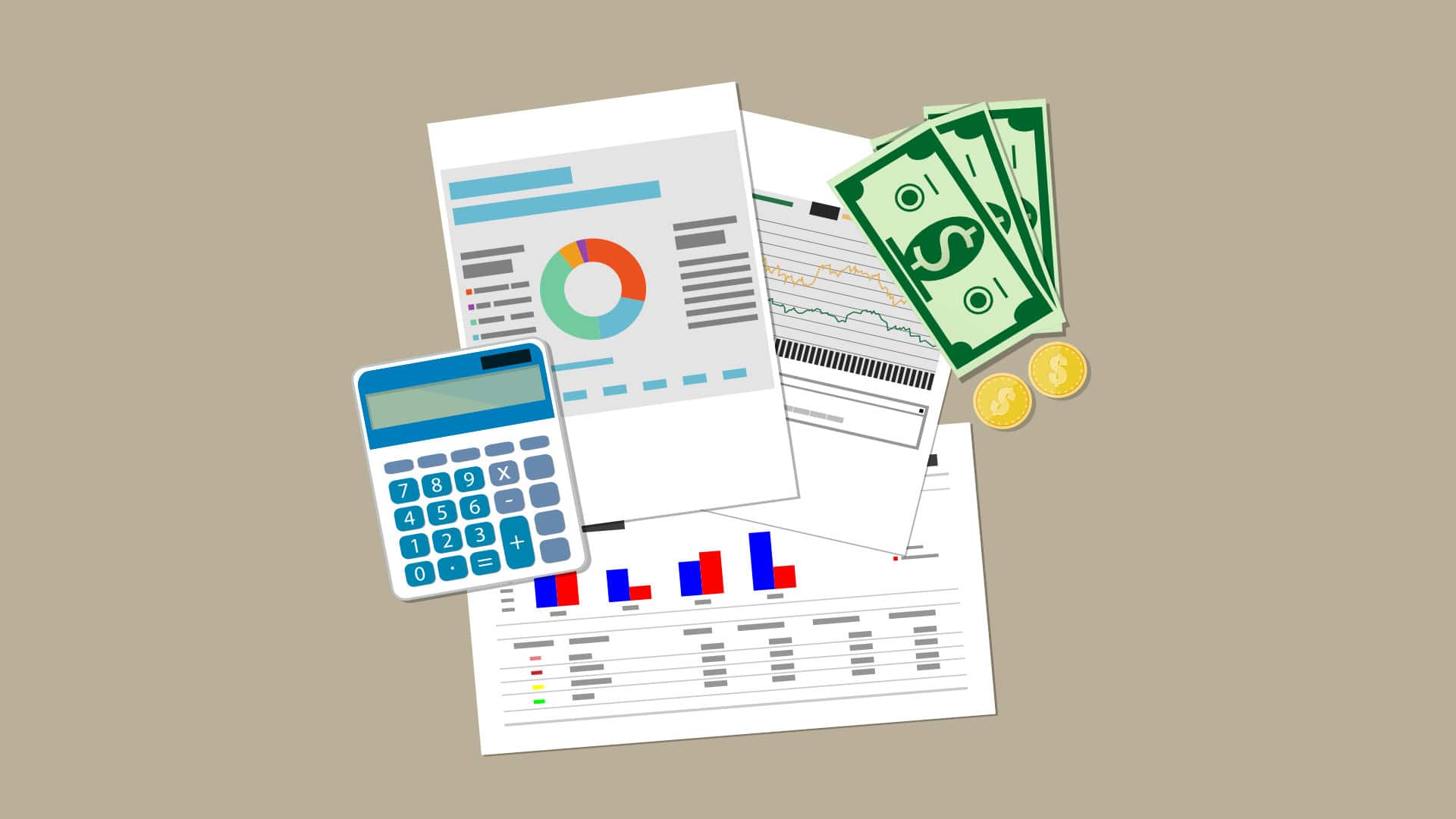
Appliance Industry 2023 Q4 Results
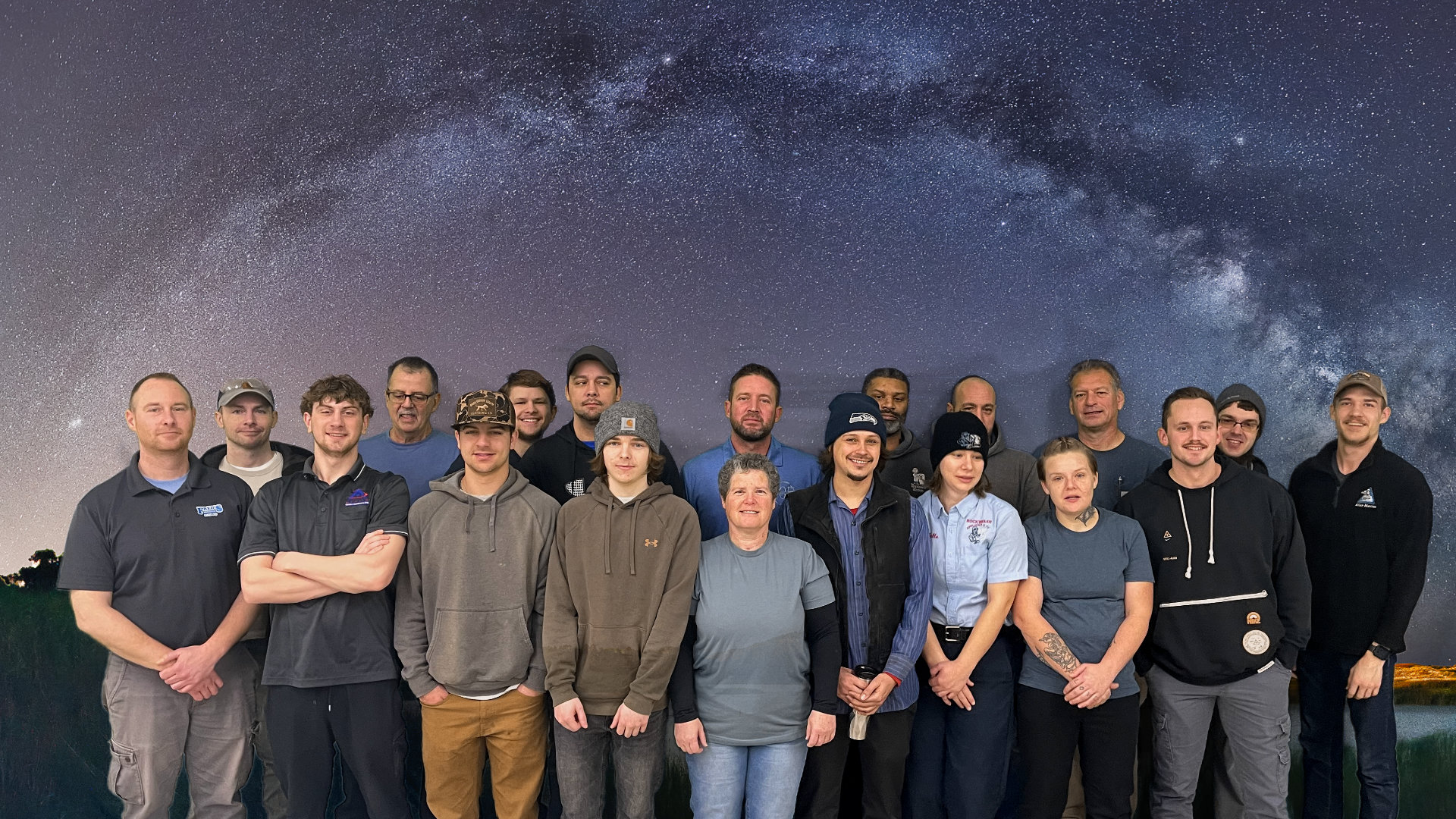
Congrats to our graduating January 2024 class
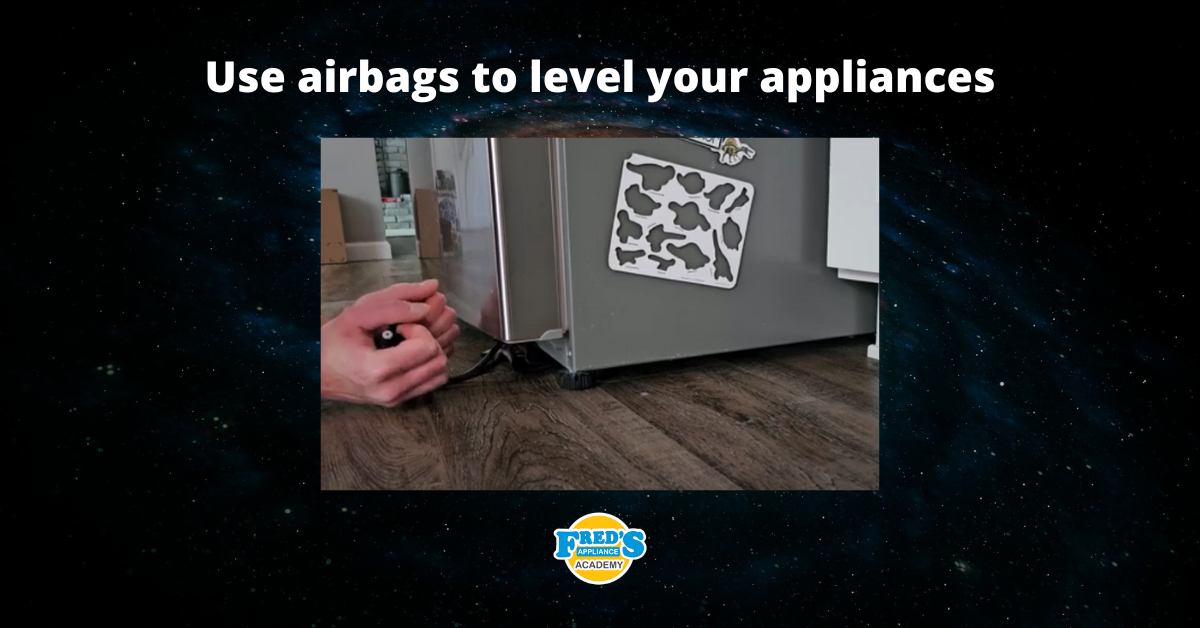
Clever ways to use airbags to level your appliances
